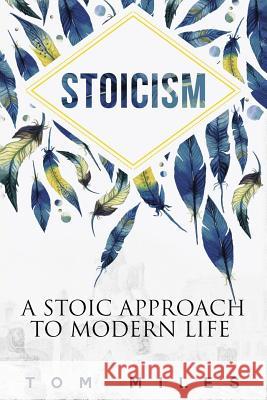Stoicism: A Stoic Approach To Modern Life » książka
Stoicism: A Stoic Approach To Modern Life
ISBN-13: 9781515096412 / Angielski / Miękka / 2015 / 36 str.
Stoicism - A Stoic Approach To Modern Life It's a well-recorded phenomenon that words are liable to develop different meanings in common modern usage compared to those they had their origins and how people "in the know" would use them. This is doubly true for philosophical concepts - the word Epicurean, for example, has been transmuted from identifying the very sober and level teachings of the Greek philosopher Epicurus to being a synonym for wanton pleasure-seeking and hedonism. Stoicism hasn't suffered as severe a distortion. The modern understanding of what it means to be stoical is never showing any form of outward emotion regardless of all circumstances, good or bad, and indeed not having any emotions whatsoever. The entire species of the Vulcans in the popular science fiction franchise Star Trek exemplifies the popular definition. But it's easy to recognize an absence of outward emotion as not necessarily being a good thing - it is possible, after all, for someone to have a calm and blank exterior and yet be screaming inside. Having no internal emotion at all is also a less-than-ideal situation as well. Without emotion, how could one possibly enjoy life? Being immune to the negatives and vicissitudes of life in this way is something we can all stand to benefit from. Our modern lives are so full of worries and insecurities, and peace and fulfillment are something most people try to find outside of themselves. Stoicism teaches that these are things we can only find from inside ourselves, and gives us the tools and mindset necessary to build them up. What this book will endeavor to do is to introduce the philosophy of Stoicism to the modern person and make a case for how it can drastically improve our outlook and quality of life It will begin with a brief retelling of the early history of Stoicism, followed by an examination of the mindset that Stoics employ and the core tenet from through which we interpret everything we come across. It will then move on to two extremely powerful practical exercises - one physical and one mental - by which we can gain control over our internal state. After that it will give a rundown of some of the most powerful pieces of advice and implications of Stoicism as they have been passed down through the ages. Finally, because it is important to see the benefits of Stoicism in action, it will give some practical, more modern examples of people who have used it to overcome trials and adversity. And, because no single book could ever encompass the full breadth of Stoical wisdom, a short bibliography for the individual who wishes to explore further is given at the very end. Here's a preview of what's inside
- Stoicism and Stoicism
- A Brief History of Stoicism
- The Stoical Mindset
- Differentiating Control
- Practical exercises for eliminating negative emotions and promoting inner peace
- General precepts and advice
Zawartość książki może nie spełniać oczekiwań – reklamacje nie obejmują treści, która mogła nie być redakcyjnie ani merytorycznie opracowana.











